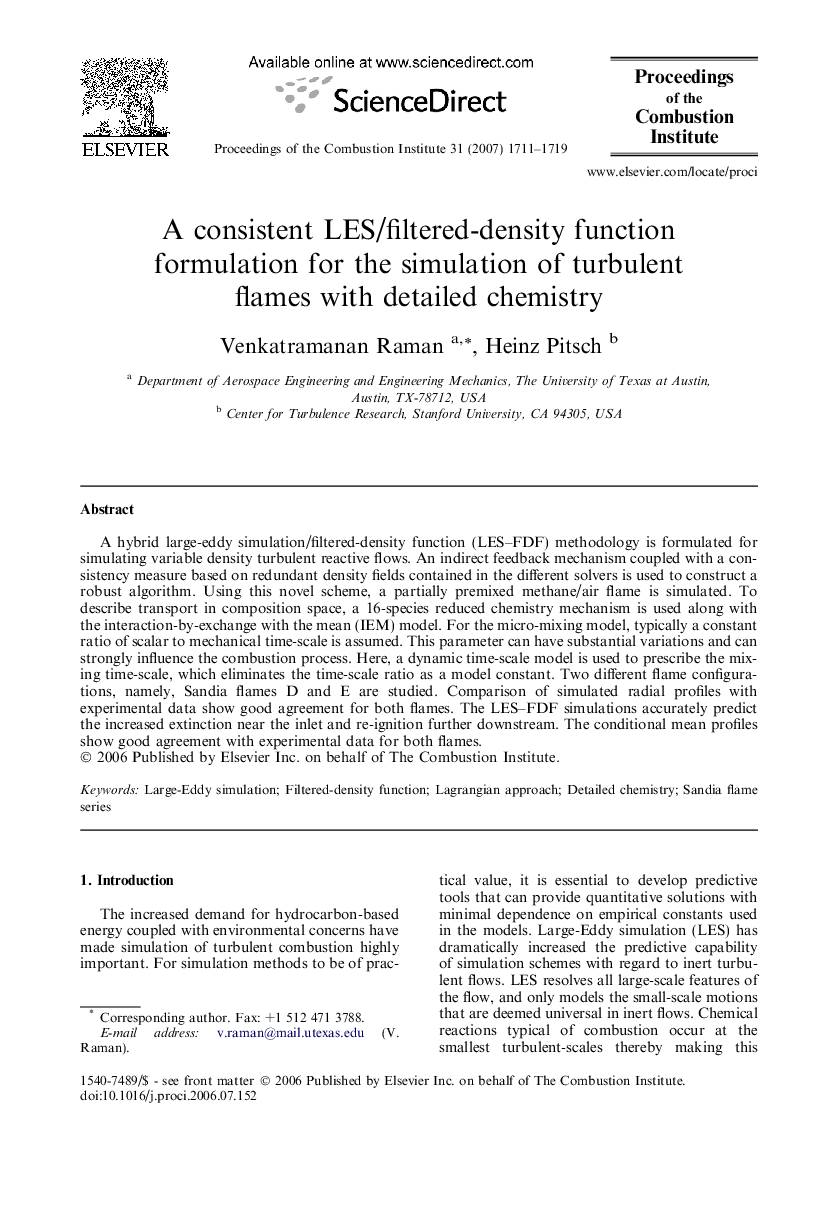| Article ID | Journal | Published Year | Pages | File Type |
|---|---|---|---|---|
| 241211 | Proceedings of the Combustion Institute | 2007 | 9 Pages |
A hybrid large-Eddy simulation/filtered-density function (LES–FDF) methodology is formulated for simulating variable density turbulent reactive flows. An indirect feedback mechanism coupled with a consistency measure based on redundant density fields contained in the different solvers is used to construct a robust algorithm. Using this novel scheme, a partially premixed methane/air flame is simulated. To describe transport in composition space, a 16-species reduced chemistry mechanism is used along with the interaction-by-exchange with the mean (IEM) model. For the micro-mixing model, typically a constant ratio of scalar to mechanical time-scale is assumed. This parameter can have substantial variations and can strongly influence the combustion process. Here, a dynamic time-scale model is used to prescribe the mixing time-scale, which eliminates the time-scale ratio as a model constant. Two different flame configurations, namely, Sandia flames D and E are studied. Comparison of simulated radial profiles with experimental data show good agreement for both flames. The LES–FDF simulations accurately predict the increased extinction near the inlet and re-ignition further downstream. The conditional mean profiles show good agreement with experimental data for both flames.
